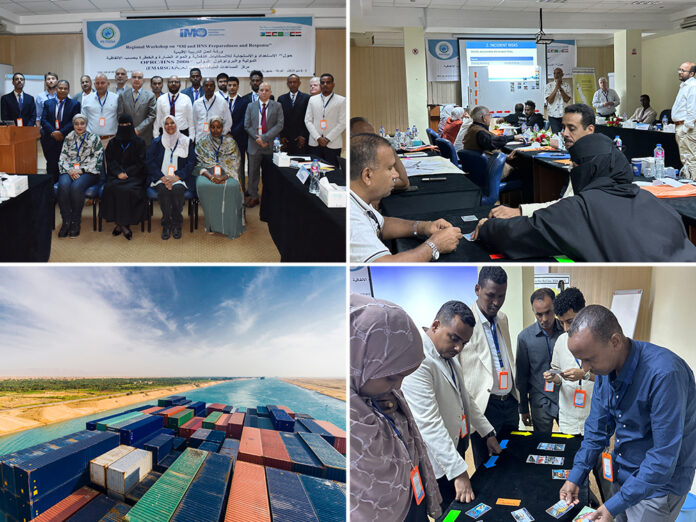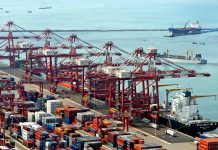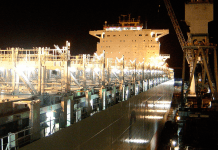
Countries bordering the Red Sea are enhancing their preparedness and response systems to address major marine pollution incidents involving oil and hazardous and noxious substances.
From 5–8 May 2025, a subregional workshop held in Hurghada, Egypt, brought together 18 government officials from Djibouti, Egypt, Eritrea, Jordan, Saudi Arabia, Somalia, and Yemen.
The event focused on developing technical expertise, improving coordination mechanisms, and strengthening contingency planning for marine pollution emergencies.
As a key global shipping corridor, the Red Sea continues to face maritime security challenges stemming from broader geopolitical tensions—some of which have led to pollution-related incidents.
The workshop aimed to equip participants with the skills and knowledge necessary to manage and mitigate large-scale marine pollution, while promoting regional cooperation, clear communication, and joint action among States, UN agencies, and international partners.
Experts conducted comprehensive sessions on oil spill prevention, emergency response strategies, and inter-agency coordination.
Participants also engaged in tabletop exercises and analyzed real-life incidents involving vessels such as the MV RUBYMAR, MV SOUNION, and ASL BAUHINIA, all of which experienced pollution events in the Red Sea.
These case studies highlighted the complex challenges of responding to maritime incidents in a geopolitically sensitive region.
The workshop was hosted by the Red Sea Emergency Mutual Aid Centre (EMARSGA) and supported by the Regional Organization for the Conservation of the Environment of the Red Sea and Gulf of Aden (PERSGA), under the IMO’s Integrated Technical Cooperation Programme (ITCP).
This initiative is expected to enhance inter-agency coordination, support the development of comprehensive regional contingency plans, and bolster overall response capacity among Red Sea countries in dealing with oil and HNS pollution incidents.





